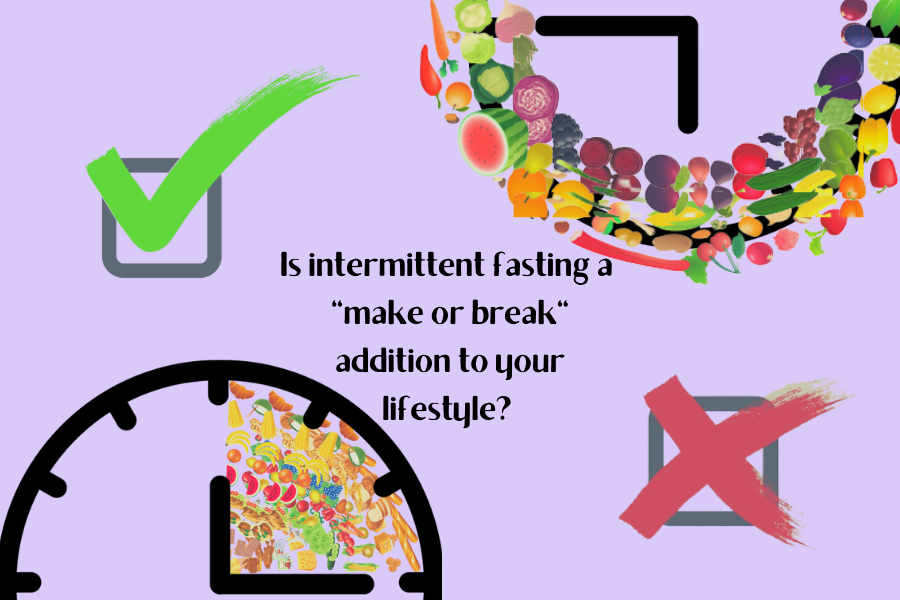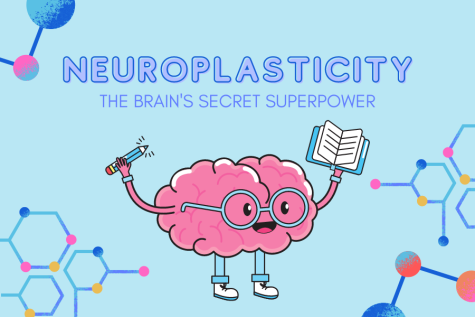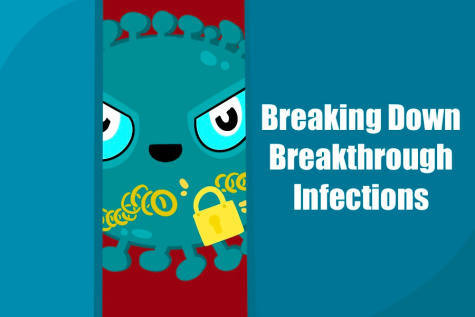Is Intermittent Fasting a “Make or Break” Addition to Your Lifestyle?
What is Intermittent Fasting?
Intermittent fasting is when someone only eats during a certain period of time during the day. For example, a very popular schedule is fasting for 16 hours and having an 8-hour window to eat, which for many is from 11 am -7 pm. Many people have seen fat loss by doing intermittent fasting, as well as other health benefits.
Human bodies have evolved to a point where food does not need to be constantly supplied in order to have energy. Humans can go without food for up to a few days, but this is not healthy or encouraged.
When the body is not fasting, glucose is the main source of energy, for both cells throughout the body and neurons, which are brain cells. People may see fat loss with intermittent fasting because a decrease in glucose will lead to fat cells releasing fat, and turning into ketones. Ketones are fatty acids that are released from the liver into the bloodstream. They support muscle function and are essentially the new energy source once there is not enough glucose in the body. However, there may be concerns with how the brain reacts and functions when one practices intermittent fasting consistently.
Pros and Cons of Intermittent Fasting
Intermittent fasting has both benefits and disadvantages. Fasting has proven to increase neuronal growth and survival, which helps the brain to perform better. In addition, fasting increases neuroplasticity, which is the brain’s ability to reorganize synaptic connections after an injury. Thus, improved neuroplasticity helps the brain combat illness and adapt to new situations more efficiently. Although there are many benefits to intermittent fasting, there are also some drawbacks to this feeding practice. For some, it may cause frequent overeating. Because the human body is fasting for longer periods of time, appetite hormones in the brain will take charge when the body is not receiving proper nutrients. In addition to overeating, intermittent fasting may be dangerous for people with certain diseases or conditions, such as diabetes and high blood pressure.
What’s Your Opinion?
Now that the positive side and negative side of intermittent fasting have been laid out, what do you believe? Is it worth it to go through a long period of intermittent fasting in order to improve neurological function, or is the concern of declining health too substantial to ignore? The choice of whether to practice intermittent fasting can be difficult to make, but one must understand the advantages and disadvantages in order to make a well-informed decision.
Works Cited
“4 intermittent fasting side effects to watch out for.” Harvard Health Publishing, Harvard Medical School, www.health.harvard.edu/staying-healthy/4-intermittent-fasting-side-effects-to-watch-out-for. Accessed 24 May 2021.
Gunnars, Kris. “Intermittent Fasting 101 — The Ultimate Beginner’s Guide.” Healthline, 20 Apr. 2020, www.healthline.com/nutrition/intermittent-fasting-guide. Accessed 24 May 2021.
“Intermittent Fasting: What is it, and how does it work?” Health, Johns Hopkins Medicine, www.hopkinsmedicine.org/health/wellness-and-prevention/intermittent-fasting-what-is-it-and-how-does-it-work. Accessed 24 May 2021.
Jandial, Rahul. “The Popular Diet One Neurosurgeon Swears By as a Way to Boost Your Brainpower.” Health, 8 Jan. 2020, www.health.com/nutrition/brain-health-intermittent-fasting. Accessed 24 May 2021.
Wnuk, Alexis. “How Does Fasting Affect the Brain?” BrainFacts.org, 13 July 2018, www.brainfacts.org/thinking-sensing-and-behaving/diet-and-lifestyle/2018/how-does-fasting-affect-the-brain-071318. Accessed 24 May 2021.







